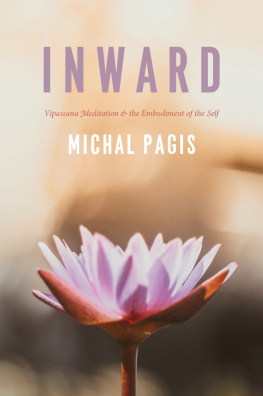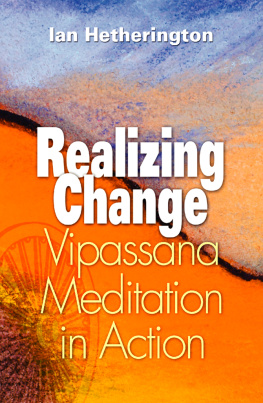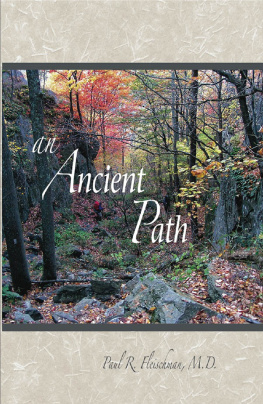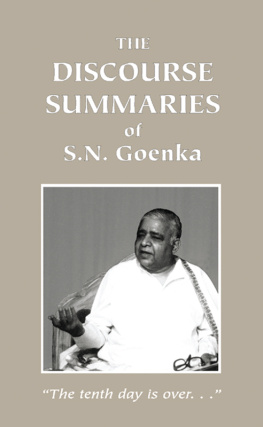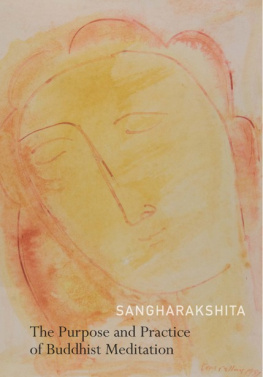The scanning, uploading, and distribution of this book via the Internet or by any other means without the permission of the publisher violates the copyright.
You support Pariyatti in its mission by honoring the copyright and by not sharing this e-book broadly with others who might otherwise purchase it. By encouraging others to purchase e-books, you will be helping Pariyatti to continue to bring future books such as this one to a broader audience.
Please purchase only authorized electronic editions and do not participate in or encourage electronic piracy of copyrighted materials. Thank you for your support.
Meditation Now
Inner Peace through Inner Wisdom
by S.N. Goenka
A Collection Commemorating
Mr. Goenkas Tour of North America
AprilAugust, 2002

Vipassana Research Publications Onalaska, Washington
Vipassana Research Publications
an imprint of
Pariyatti Publishing
867 Larmon Road
Onalaska, WA 98570
www.pariyatti.org

2002 Vipassana Research Institute
Second printing 2003
Third printing 2009
PDF eBook 2012
All rights reserved. No part of this book may be used or reproduced in any manner whatsoever without the written permission of the Vipassana Research Institute, except in the case of brief quotations embodied in critical articles and reviews.
ISBN: 9-781-928706-23-6 (Softcover Print)
ISBN: 9-781-938754-21-0 (PDF eBook)
ISBN: 978-1-938754-35-7 (ePub)
The publishers are grateful to the following for their help with this collection:
The publishers and editors of the Vipayan Patrik and of the Vipassana Research Institute for their translations and generous assistance in gathering the materials.
Alan Atkisson for his kind permission to print his interview with Mr. Goenka.
S. N. Goenka
A Teacher for the World
Mr. Satya Narayan Goenka, the foremost lay teacher of Vipassana meditation, was a student of the late Sayagyi U Ba Khin of Burma (Myanmar). The technique which Mr. Goenka teaches represents a tradition that is traced back to the Buddha. The Buddha never taught a sectarian religion; he taught Dhammathe way to liberationwhich is universal. In the same way, Mr. Goenkas approach is totally nonsectarian. For this reason his teaching has a profound appeal to people of all backgrounds, of every religion and no religion, from every part of the world.
From Businessman to Spiritual Teacher
Mr. Goenka was born in Mandalay, Myanmar, in 1924. He joined his family business in 1940 and rapidly became a pioneering industrialist, establishing several manufacturing corporations. He soon became a leading figure in Myanmars large influential Indian community, and for many years headed such organizations as the Burma Marwari Chamber of Commerce and the Rangoon Chamber of Commerce & Industry. He often accompanied Union of Burma trade delegations on international tours as an advisor.
In 1956 Mr. Goenka took his first ten-day Vipassana course at the International Meditation Center in Rangoon, under the guidance of Sayagyi U Ba Khin. In 1964-1966 Mr. Goenkas businesses and industries were taken over when the newly installed military government of Myanmar nationalized all industry in the country. This gave him an opportunity to spend more time with his teacher for meditation and in-depth training, all the while remaining a devoted family man and father of six sons. After fourteen years practicing with his teacher, he was appointed a teacher of Vipassana himself and devoted his life to spreading the technique for the benefit of all humanity. Shortly thereafter he came to India and conducted his first ten-day meditation course in 1969. In India, a country still sharply divided by caste and religion, Vipassana has been widely and easily accepted because of its nonsectarian nature.
The Vipassana International Academy (Dhamma Giri) was established in 1974 in Igatpuri, near Mumbai, India. Courses of ten days duration and longer are held there continuously. In 1979 Mr. Goenka began traveling abroad to introduce Vipassana in other countries of the world. He has personally taught tens of thousands of people in more than 400 ten-day courses in Asia, North America, Europe and Australasia.
In response to an ever-growing demand, he started training assistant teachers to conduct these ten-day residential courses on his behalf. To date, he has trained more than 700 assistant teachers who have, with the help of thousands of volunteers, held Vipassana courses in more than 90 countries, including the Peoples Republic of China, Iran, Muscat, the United Arab Emirates, South Africa, Zimbabwe, Mongolia, Russia, Serbia, Taiwan, Cambodia, Mexico and all the countries of South America. More than 100 centers devoted to the teaching of Vipassana have been established in 21 countries. Today more than 1,000 courses are held annually around the world. One of the unique aspects of these Vipassana courses is that they are offered free of any charge for board, lodging or tuition; the expenses are completely met by voluntary donations. Neither Mr. Goenka nor his assistants receive any financial gain from these courses.
A prolific writer and poet, Mr. Goenka composes in English, Hindi and Rajasthani, and his works have been translated into many languages. He has been invited to lecture by institutes as diverse as the Dharma Drum Mountain Monastery (of Ven. Sheng Yen) in Taiwan; the World Economic Forum in Davos, Switzerland, and the Millennium World Peace Summit at the United Nations where he stressed for the assembled spiritual leaders the overreaching importance of inner peace to effect real world peace.
Teaching for All Sections of Society:
From Prisoners to Government Officials
Vipassana meditation has been taught to prison inmates and staff in many parts of India as well as the United States, Britain, New Zealand, Taiwan and Nepal. There are permanent Vipassana centers in two Indian prisons. More than 10,000 inmates have attended ten-day Vipassana courses in jails and prisons. One thousand prisoners participated in a ground-breaking ten-day course conducted by Mr. Goenka in Tihar Jail, Delhi, in April, 1994. What started in a dramatic way in Tihar has now spread all over India. Convinced of its positive effects the Government of India has recommended that every prison in the country should organize ten-day Vipassana courses for inmates. As a result hundreds of prisoners continue to participate in Vipassana retreats every month. In addition, thousands of police officers have also attended Vipassana courses at the meditation center at the Police Academy, Delhi, and at other centers in India.
Men and women from all walks of life successfully practice Vipassana. They include the highly educated and the illiterate, the wealthy and the impoverished, aristocrats and slum-dwellers, devout followers of every religion and followers of none, the powerful and the powerless, the elderly and the young. Courses have been organized for people with disabilities, including the blind and leprosy patients. Other programs have focused on school children, drug addicts, homeless children, college students and business executives.
High level institutions in India, such as the governments of the states of Maharashtra, Andhra Pradesh and Madhya Pradesh; large corporations such as the Oil and Natural Gas Commission; leading research institutes such as the Bhabha Atomic Research Institute; and national training institutes such as the Indian Institute of Taxationall encourage their employees to attend Vipassana courses as part of their ongoing job training.
Next page


